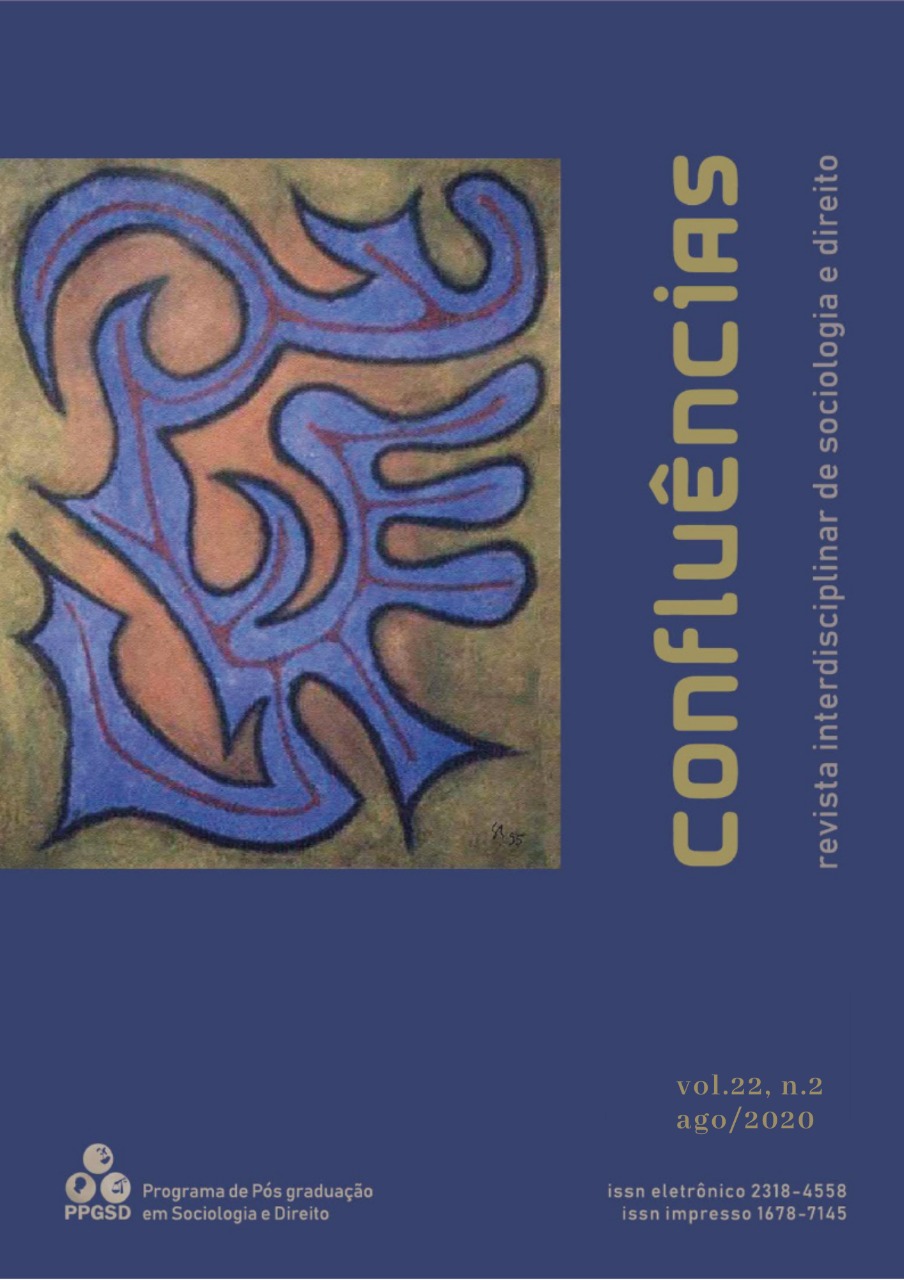PANORAMA AND CHALLENGES OF INDIGENOUS PEOPLES IN THE CONTEXT OF THE COVID-19 PANDEMIC IN BRAZIL
DOI:
https://doi.org/10.22409/conflu.v22i2.43050Keywords:
Indigenous peoples. Pandemic. Territory. Indigenous health.Abstract
The purpose of this text is to analyze the situation of indigenous peoples in Brazil in the context of the covid-19 pandemic, using two theorical methodological movements. The first is to look at the actions of the Brazilian indigenous movement adopted shortly after the World Health Organization (WHO) recognized the new coronavirus pandemic, especially the strategies undertaken by indigenous communities and organizations in the face of the State's failure to present plans and execute actions targeted specifically at indigenous peoples, increasing the vulnerability and risk of contagion by the coronavirus. The other view is centered on the State and its inability to deal with the Brazilian indigenous reality. In addition to work, it constitutes an important record and, therefore, offers an overview of the situation and how the facts unfolded; it makes it possible to bring up reflections on the challenges of indigenous peoples in a context beyond the pandemic, that is, such a situation necessarily requires bringing up the discussion of the historical demands of the peoples, which necessarily involves analyzing the relationship of the State with the original peoples, the urgent and the completion of the demarcation of indigenous lands and respect for indigenous worldviews over their territories is necessary. In this sense, the indigenous vision of respect for mother earth and its natural resources, comes to the fore to understand the origins of epidemiological outbreaks and how vital it is to preserve nature for indigenous peoples, but also for the maintenance of human life in the world. planet. This is a political message that the indigenous movement and its leaders have passed on for many years and that has not been discussed with the seriousness required by countries. The traditional territories so vital to indigenous peoples play a role in the balance of human life, and the capital that oppresses these peoples, now forces everyone to reflect on the good life and the climatic consequences that the destruction of biodiversity in a global context.Downloads
References
ABEP. Análise de Vulnerabilidade Demográfica e Infraestrutural das Terras Indígenas à Covid-19. Disponível em https://www.nepo.unicamp.br/publicacoes/Caderno-Demografia-Indigena-e-COVID19.pdf, acesso em 02.jun.2020.
APIB. Documento final do Acampamento Terra Livre 2020. Disponível em www.apib.info.
_____. Lideranças indígenas organizam assembleia para construir plano de enfrentamento à pandemia. http://apib.info/2020/05/07/assembleia-resistencia-indigena/. Acesso em 02.jun.20.
_____. Plano de enfrentamento do Covid-19 no Brasil. No prelo. Brasília, 2020.
_____. Regimento Interno da Articulação dos Povos Indígenas do Brasil – APIB. Disponível em www.apib.info.
_____. Relatório do Acampamento Terra Livre 2020. 16º Edição on-line, 27 a 30 de abril de 2020. Disponível em www.apib.info. Acesso em 02.jun.2020.
CÂMARA DOS DEPUTADOS. Câmara aprova projeto que prevê ações para prevenir Covid-19 entre indígenas e quilombolas. Agência Câmara de Notícias. Disponível em https://www.camara.leg.br/noticias/663632-camara-aprova-projeto-que-preve-acoes-para-prevenir-covid-19-entre-indigenas-e-quilombolas , acesso em 02.jun.2020.
COIAB. Nota de repúdio contra a tentativa de legalização de missões religiosas em territórios ocupados por indígenas em isolamento voluntário. Disponível em https://coiab.org.br/conteudo/1590113259203x242154533360238600, acesso em 02.jun.2020.
DUPRAT, Deborah. O Estado pluriétnico. In: Antonio Carlos de Souza Lima; Maria Barroso-Hoffmann, (orgs.). Além da tutela: bases para uma nova política indigenista, III. Rio de Janeiro: Contra Capa; LACED, 2002, p. 41-47.
FIOCRUZ. Risco de espalhamento da COVID-19 em populações indígenas: considerações preliminares sobre vulnerabilidade geográfica e sociodemográfica. 4º relatório sobre risco de espalhamento da COVID-19 em populações indígenas. Disponível em https://portal.fiocruz.br/documento/4o-relatorio-sobre-risco-de-espalhamento-da-covid-19-em-populacoes-indigenas, acesso em 02.jun.2020.
PAULA, L. R de, ROSALEN, J. Uma visualização da pandemia da Covid-19 entre os povos indígenas no Brasil a partir dos boletins epidemiológicos da Sesai (01.04.20 A 29.05.2020). São Paulo, 2020.
SOUZA LIMA, A. C. Um Grande Cerco de Paz. Poder Tutelar, Indianidade e Formação do Estado no Brasil. Petrópolis: Vozes. 1995.
STF. Relator suspende tramitação de processos sobre áreas indígenas até fim da pandemia. Disponível em http://portal.stf.jus.br/noticias/verNoticiaDetalhe.asp?idConteudo=442822&ori=1, acesso em 02.jun.2020.







